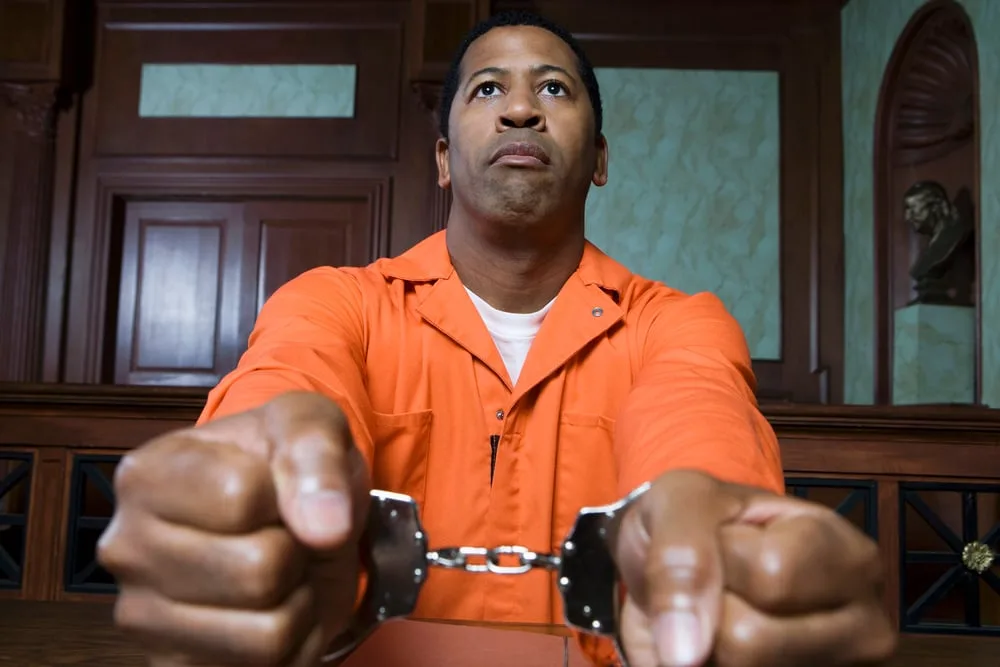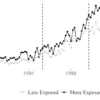When mental distress or symptoms associated with mental health conditions manifest, the response from society and law enforcement can vary drastically depending on one’s race. This alarming truth is the focus of recent research spearheaded by Briana N. Brownlow and colleagues, which highlights a significant racial disparity: Black Americans, compared to White Americans, are more likely to be arrested for the same level of ‘psychopathology severity,’ including emotion dysregulation and impulsivity.
The study’s findings underscore a systemic bias where signs of mental distress in Black Americans are disproportionately met with arrest and incarceration rather than support and treatment. For Black Americans, specifically Black men, exhibiting emotional dysregulation in the form of aggression, the risk of arrest is 3.11 more likely than White men exhibiting the same levels of aggression.
This research not only sheds light on the intersection of mental health and the criminal justice system but also points to the deep-rooted structural racism that contributes to the overrepresentation of Black Americans in the criminal justice system. The research team found that in every intersection between psychopathology, anger and aggression, impulsivity, and juvenile arrests, both Black men and women had significantly higher rates of arrest than White men and women.
“These findings held even when controlling for relevant individual and contextual factors known to increase one’s risk for involvement in the criminal justice system,” the authors write.
“Consequently, the results of this study highlight that the overrepresentation of Black Americans in the criminal justice system is a function of systematic racism and inequitable and racially biased laws and practices, rather than a result of psychological risk factor differences in Black Americans.”
 This research indicates that symptoms of psychopathology in Black Americans are often met with criminalization. The study provides historical context, explaining how systemic racism within the criminal justice system originated from slavery. Policing in America evolved from “slave patrols” in the 1700s, which, after the Civil War, became police departments tasked with enforcing Jim Crow laws. This legacy has led to increased surveillance in Black communities and, combined with the “War on Drugs” and mass incarceration, has resulted in widespread systemic oppression. The data show that Black Americans are more likely to be arrested, convicted, and incarcerated compared to White Americans, irrespective of mental health status. This disparity extends to young people, with Black youths being five times more likely to face incarceration than their White counterparts.
This research indicates that symptoms of psychopathology in Black Americans are often met with criminalization. The study provides historical context, explaining how systemic racism within the criminal justice system originated from slavery. Policing in America evolved from “slave patrols” in the 1700s, which, after the Civil War, became police departments tasked with enforcing Jim Crow laws. This legacy has led to increased surveillance in Black communities and, combined with the “War on Drugs” and mass incarceration, has resulted in widespread systemic oppression. The data show that Black Americans are more likely to be arrested, convicted, and incarcerated compared to White Americans, irrespective of mental health status. This disparity extends to young people, with Black youths being five times more likely to face incarceration than their White counterparts.
The study sample consisted of 1,562 adults from Chicago, with an average age of 34.81. The gender distribution was 54.4% women and 45.6% men. Moreover, 62.5% of the participants identified as White Americans, 37.5% as Black Americans, and 42.1% had attained at least a college degree. The annual income for the participants ranged from $35,000 to $70,000. The study did not include juvenile participants, although the adults reported juvenile arrests. It’s worth noting that these demographics are similar to those of the Chicago metropolitan area.
Individuals with an active substance use disorder were not considered for participation. However, those with a history of substance use disorder in the past were eligible. In addition, the research team excluded individuals with a current or lifetime history of a psychotic disorder, an organic brain disorder, or intellectual disability.
Researchers tested six variables, including Borderline Personality Disorder, Antisocial Personality Disorder, Impulsive Behavior, and two measures of Aggression. Trained individuals conducted interviews, but not all participants completed every measure, so the sample size varied. Regression testing measured the interaction between variables and found that the interaction between psychological factors and race was significant in every variable domain.
The Brownlow study’s findings highlight a stark racial disparity in arrest rates, regardless of similar symptoms of psychopathology in Black and White Americans.
When looking at adults with Borderline Personality Disorder, Black men had an arrest rate of 2.11, more than three times higher than the rate for White men, which was 0.68. Black women in this group were also more likely to be arrested (0.55) compared to White women (0.18). For Antisocial Personality Disorder, Black men faced arrests 1.02 times more frequently, and Black women 0.32 times more than their White counterparts.
In tests focusing on anger, Black men were arrested 2.54 times more often than White men, while Black women had a 0.45 higher arrest rate than White women. The gap widened in the aggression domain, with Black men facing arrest rates 3.11 times higher and Black women 0.83 times higher than White men and women, respectively.
Impulsivity also showed higher arrest rates for Black Americans. Black men and women were arrested at rates of 2.11 and 0.55 times more than White men and women, respectively. Juvenile arrest rates also influenced adult arrest rates. While White men who were arrested as juveniles were 0.96 times more likely to be arrested as adults, Black men had a significantly higher likelihood at 3.11 times. This shows that Black men are over three times more likely to be arrested as adults compared to White men, even when juvenile arrests are considered.
“Taken together, the results suggest that race, or racism as it were, matters in characterizing the relationship between psychological factors and arrests because these associations should be consistent irrespective of race. However, across every psychological risk factor for arrests in adulthood, we found that Black Americans had a heightened rate of adult arrests compared with their White counterparts,” the researchers write.
“Our findings imply that Black individuals are more likely to be penalized and criminalized even when at the same levels of emotion dysregulation or impulsivity as their White counterparts.”
The research team has identified a few limitations in this study. It was found that levels of anger, aggression, and impulsivity are likely to be higher compared to the general population. This is because the study oversampled these traits for research purposes. However, individuals with severe substance use disorders were excluded from the study, even though this disorder is often comorbid with other identified study variables. Nonetheless, individuals with past substance use disorders were included in the study. The self-reported rates of arrest for two participants were extremely high, so they were excluded from the analysis to examine the effect. All tests remained statistically significant.
The study acknowledges that socioeconomic status (SES) as a variable is influenced by systemic racism, as highlighted by the Pew Research Center in 2020. This bias means that White families generally have higher wealth compared to Black families. Consequently, it’s challenging to apply SES uniformly across racial groups due to the varying impacts of racial oppression. The authors point out the difficulty in comparing Black and White Americans in terms of SES, given the pervasive effects of structural racism.
In the American criminal justice system, Black Americans face disproportionate oppression. The initial point of contact with this system is often an arrest, which can lead to involvement in the court system and eventually incarceration. Incarceration itself can have detrimental effects on mental health. The study finds that Black Americans showing signs of emotional dysregulation are more likely to be arrested, exacerbating their mental health issues.
Previous reports have shown that responses to calls made to the 988 mental health hotline often involve criminal justice interventions. This trend is particularly concerning for Black Americans, who disproportionately face economic inequality, police brutality, and disparities in education.
****
Brownlow, B. N., Harmon, K. S., Pek, J., Cheavens, J. S., Moore, J. L., & Coccaro, E. F. (2024). Criminalizing Psychopathology in Black Americans: Racial and Gender Differences in the Relationship Between Psychopathology and Arrests. Clinical Psychological Science, 0(0). https://doi.org/10.1177/21677026231217312 (Link)


